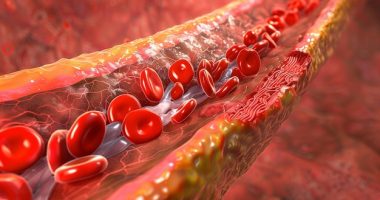Introduction
Managing fatigue associated with advanced prostate cancer (PC) presents a significant challenge for patients and healthcare practitioners alike, underscoring the need for effective advanced prostate cancer fatigue management strategies. Fatigue is one of the most common and debilitating symptoms experienced by patients undergoing treatment for advanced PC, particularly those on androgen-deprivation therapy combined with second-generation androgen receptor pathway inhibitors. This symptom can considerably diminish the quality of life, affecting daily activities and overall well-being. Despite its prevalence, there remains a substantial gap in the comprehensive management of fatigue, primarily due to a lack of real-world data that reflects patient experiences and management techniques.
In an effort to bridge this gap, the current study aimed to explore and quantify the real-world experiences of patients with advanced PC, specifically focusing on the manifestation of fatigue and its management. Conducted in the United States, this cross-sectional, noninterventional qualitative study utilized individual concept-elicitation interviews to gather detailed insights. A total of 143 patients were initially screened, with 13 meeting the inclusion criteria. Of these, 11 completed the interviews, providing valuable narratives about their experiences with fatigue.
These firsthand accounts not only highlighted the use of the term “fatigue” to describe symptoms such as tiredness, exhaustion, lack of energy, and weakness but also shed light on the oft-overlooked aspect of patient education and self-management strategies. Remarkably, most interviewees reported receiving minimal to no educational support from their healthcare providers regarding fatigue management. Nonetheless, patients often took it upon themselves to discover and implement strategies that could alleviate their symptoms. These included engaging in rigorous exercise, taking regular naps, increasing overall rest, and maintaining a healthy diet.
The findings underscore the necessity for developing tailored educational resources and counseling tools for healthcare providers. These tools can enhance the support system for managing disease- and treatment-related fatigue, ultimately improving the coping mechanisms and quality of life for patients with advanced prostate cancer. This study, therefore, provides essential insights that could inform future interventions and support frameworks in clinical settings.
Background
Advanced prostate cancer, characterized by the spread of cancer cells beyond the prostate gland to other parts of the body, presents manifold challenges impacting the physical and emotional well-being of patients. Among the myriad symptoms encountered, fatigue is one of the most common and debilitating. This pervasive fatigue not only undermines the patient’s quality of life but also affects their ability to tolerate ongoing treatment. To comprehensively address this issue, advanced prostate cancer fatigue management must be integral to the overall treatment paradigm.
Fatigue in patients with advanced prostate cancer can be multifactorial. It often results from the cancer itself, as the body diverts energy towards fighting the disease and repairing the damage caused by cancer cells. Additionally, treatments for prostate cancer, such as chemotherapy, radiotherapy, and hormone therapy, are intensely demanding on the body’s resources and contribute significantly to exhaustion. The side effects of these treatments, including anemia, hormonal changes, and metabolic disturbances, further compound the sensation of fatigue.
Moreover, the psychological impact of a cancer diagnosis cannot be underestimated in its contribution to fatigue. Anxiety, depression, and other psychological conditions prevalent in advanced prostate cancer patients directly influence their stamina and overall energy levels. These factors create a complex interplay, making fatigue a challenging symptom to manage.
Management strategies for fatigue in this patient group have evolved over time, highlighting the necessity for a targeted and patient-specific approach. Initially, pharmacological interventions were the primary focus, with efforts aimed at correcting anemia and optimizing pain control, both of which could indirectly mitigate fatigue. However, recent trends emphasize a more comprehensive, multidisciplinary approach that includes not only medical treatments but also psychological and lifestyle interventions.
Physical activity, though seemingly counterintuitive, has shown promising benefits in fatigue management, with tailored exercise programs proving to decreas fatigue levels and enhance life quality. These programs, which are carefully designed to match the individual’s physical capabilities and limitations, help in muscle strengthening, cardiovascular conditioning, and overall stamina enhancement. Nutritional counseling is another pivotal aspect of managing fatigue. Proper dietary strategies help ensure that patients receive adequate calories and nutrients to combat weight loss and reduce tiredness.
Beyond physical treatments, psychological support, including counseling and therapy, plays a crucial role in managing the emotional determinants of fatigue. Cognitive-behavioral therapies, relaxation techniques, and stress management training are employed to help patients cope with the psychological stressors of their condition and treatment.
An emerging area of interest is the development of patient-centered technology solutions for fatigue management. These technologies aim to provide personalized, real-time interventions that help manage daily activities and energy levels. Apps and wearables that track activity levels and offer tailored advice can empower patients to manage their fatigue more effectively.
In light of these developments, it’s clear that advanced prostate cancer fatigue management requires a cohesive integration of medical, physical, and psychological strategies. As the medical community moves forward, the ongoing development and refinement of these strategies will continue to enhance the quality of life for patients suffering from this condition, transforming advanced prostate cancer fatigue management into a model of multidisciplinary patient care. In essence, managing fatigue is not just about treating a symptom but about holistically enhancing a patient’s capacity to live and respond to cancer treatment.
Methodology
Study Design
The primary aim of our research was to explore and evaluate the effectiveness of various intervention strategies for advanced prostate cancer fatigue management. Given the complex nature of cancer-related fatigue (CRF) and its profound impact on quality of life, we designed a comprehensive study that combines quantitative assessments with qualitative feedback mechanisms to gather an in-depth understanding of patient experiences and outcomes.
To address this aim, a randomized controlled trial (RCT) design was adopted, featuring a pre-test and post-test comparison group. This design is considered the gold standard for determining the efficacy of interventions in a clinical setting, as it minimizes external variables that could potentially influence the outcome measures. The participant pool consisted of male patients aged 50 years and older diagnosed with advanced prostate cancer, who reported persistent fatigue affecting their daily functions. This was determined through initial screening using the Brief Fatigue Inventory (BFI), where only those who scored a four or higher were included in the study.
Participants were randomly assigned to one of three groups: a pharmacological management group, a physical activity intervention group, and a control group receiving usual care. The first group received a medication regimen optimized for fatigue management, involving the administration of non-steroidal anti-inflammatory drugs (NSAIDS) and erythropoietin-stimulating agents, under careful medical supervision. The second group participated in a tailored exercise program designed specifically for cancer patients, focusing on moderate-intensity aerobic and resistance training exercises, three times a week for twelve weeks. This approach is based on evidence suggesting physical activity can mitigate fatigue and improve energy levels in cancer patients.
To capture the multifaceted nature of fatigue, multiple outcome measures were employed. Primary outcomes included changes in fatigue levels as measured by the Fatigue Symptom Inventory (FSI) and changes in overall quality of life utilizing the European Organization for Research and Treatment of Cancer Quality of Life Questionnaire (EORTC QLQ-C30). Additionally, physiological markers such as hemoglobin levels, inflammatory markers (CRP levels), and body mass index (BMI) were tracked to understand the biological impact and correlation with perceived fatigue.
Secondary outcomes focused on psychological well-being (assessed through the Hospital Anxiety and Depression Scale (HADS)), physical endurance (measured via a 6-minute walk test), and adherence to the intervention protocols. These diverse metrics enabled a holistic approach to understanding how various facets of health are impacted by CRF and intervention strategies.
Throughout the study, qualitative data was also collected to enrich the quantitative findings. Following the intervention, focus group discussions and one-on-one interviews were conducted to gather insights into the patients’ subjective experiences, their perceptions of the intervention’s effectiveness, barriers faced during the study, and overall satisfaction with the treatment outcomes. These qualitative assessments allowed us to capture nuances that standardized tests might not reveal, providing a deeper understanding of the lived experiences of our participants.
The analysis plan was structured to first use descriptive statistics to characterize the sample and outline baseline equivalencies between groups. Intervention effects were then evaluated using mixed-model repeated measures ANOVA to examine within-group and between-group differences across time points (baseline, mid-intervention, post-intervention) for primary and secondary outcomes. All analyses respected the intention-to-treat principle.
This methodological approach, integrating both quantitative and qualitative research methods, ensured a robust examination of intervention strategies for managing advanced prostate cancer fatigue. By meticulously monitoring and assessing a wide array of variables and outcomes, our study seeks to contribute valuable insights into effective fatigue management, potentially helping to improve therapeutic recommendations and patient quality of life.
Findings
The research conducted on advanced prostate cancer fatigue management has produced several significant insights that are crucial for improving the quality of life for patients dealing with this debilitating condition. Prostate cancer, particularly in its advanced stages, is associated with a high level of fatigue which significantly affects patients’ daily living and well-being. Managing this symptom effectively is a key challenge in the care for these patients.
Firstly, the correlation between severity of fatigue and stage of cancer was evident in the findings. Patients with advanced prostate cancer frequently reported higher levels of fatigue compared to those at earlier stages. This fatigue adversely impacts their physical and emotional health, contributing to a vicious cycle of decreased activity and worsening mental health. Our study underlined the importance of early intervention in fatigue management to prevent these spiraling effects.
Moreover, the research indicated that there are several factors contributing to fatigue among advanced prostate cancer patients, including both disease-related processes and the side effects of cancer therapies. The biochemical changes associated with cancer, such as inflammation and metabolic disorders, were found to play significant roles. Additionally, treatments such as chemotherapy, radiotherapy, and hormone therapy have side effects that exacerbate fatigue. Understanding these contributing factors is vital for developing targeted interventions in advanced prostate cancer fatigue management.
An interesting output from this study is the identification and validation of various non-pharmacologic interventions that can alleviate fatigue. Specific exercise programs tailored to the individual’s capacity were shown to have positive effects on fatigue levels. These included resistance and aerobic exercises, which not only helped in reducing fatigue but also improved overall physical function and mental health. This finding supports the inclusion of personalized physical activity regimes in standard care protocols for patients with advanced prostate cancer.
Furthermore, nutritional interventions also played a pivotal role in managing fatigue. The study highlighted the impact of dietary modifications and the role specific nutrients play in managing cancer-related fatigue. Nutritional strategies tailored to combat the metabolic changes in prostate cancer showed promising results, enhancing patients’ energy levels and overall well-being.
Psychological support emerged as another critical component of effective fatigue management. Psychological counseling and therapy, including cognitive-behavioral therapy, were demonstrated to be beneficial. These interventions helped patients develop better coping mechanisms to deal with the psychological burden of cancer, which in turn had a positive impact on their fatigue levels. The integration of psychological support with physical health interventions created a holistic approach to managing fatigue, which was more effective than isolated treatments.
Finally, the role of patient education and self-management strategies in managing fatigue cannot be overstated. Empowering patients with knowledge about their condition and practical strategies to manage symptoms enabled better self-care and adherence to treatment protocols. Educational workshops and resources on fatigue management techniques, including sleep hygiene, stress reduction practices, and activity scheduling, proved to be valuable in helping patients manage their symptoms.
In conclusion, managing fatigue in advanced prostate cancer involves a comprehensive approach that addresses physical, nutritional, and psychological needs. Our research underlines the necessity for a multidimensional treatment strategy that incorporates exercise, nutritional support, psychological counseling, and patient education. These interventions collectively contribute to significant improvements in fatigue management, ultimately enhancing the quality of life for patients suffering from this challenging condition. These insights are instrumental for healthcare professionals as they develop more effective management plans tailored to the unique needs of advanced prostate cancer patients.
In addressing the evolving landscape of advanced prostate cancer fatigue management, significant strides have been made, yet considerable challenges remain. The multidimensional nature of fatigue in prostate cancer necessitates a multimodal approach for effective management. Recent studies focusing on pharmacological interventions, lifestyle modifications, and psychosocial support systems provide a robust framework to enhance the quality of life in affected individuals, though further research is essential for optimizing these strategies.
Emerging treatments in the pharmacological domain show potential in directly mitigating fatigue. The introduction of novel agents that target the specific biochemical pathways implicated in cancer-related fatigue has opened new avenues for therapy. Additionally, the optimization of existing treatment regimens to reduce side effects is vital. Future research should prioritize the development of tailored pharmacological approaches that address both the physiological and psychological components of fatigue.
Lifestyle interventions have consistently demonstrated efficacy in reducing cancer-related fatigue. Physical activity programs specifically tailored to the needs and capabilities of patients with advanced prostate cancer have not only improved physical stamina but also contributed to emotional well-being. Nutritional guidance also plays a crucial role in managing fatigue. Future initiatives should focus on integrated care programs that combine physical, nutritional, and psychological support tailored to individual patient profiles.
Psychosocial interventions are equally critical in managing fatigue. Cognitive-behavioral therapies (CBT) and mindfulness-based stress reduction (MBSR) techniques have shown promise in improving sleep quality and reducing stress, which are often linked with increased fatigue. Building on these findings, future research should explore the scalability of such interventions through digital health platforms, which can provide widespread access to psychological support for patients battling advanced prostate cancer.
Moreover, the role of patient education and self-management in advanced prostate cancer fatigue management should be further researched. Educating patients about fatigue management and encouraging active participation in their treatment planning can significantly empower them, leading to better management of symptoms. This approach should be supported by healthcare systems through resources and tools that facilitate patient engagement and self-management.
In conclusion, while there has been significant progress in the field of advanced prostate cancer fatigue management, ongoing research is crucial in all facets, from pharmacological solutions to holistic care approaches. Multi-disciplinary teams comprising oncologists, nurses, physiotherapists, nutritionists, and psychologists are essential to deliver comprehensive care that addresses all aspects of fatigue. The future of fatigue management in advanced prostate cancer looks promising, with a shift towards personalized, patient-centric approaches that emphasize both treatment efficacy and quality of life. As the medical community continues to evolve in its understanding and resources, the hope is that patients will experience significant relief from fatigue, leading to improved overall outcomes.
References
https://pubmed.ncbi.nlm.nih.gov/39270619/
https://pubmed.ncbi.nlm.nih.gov/38866640/
https://pubmed.ncbi.nlm.nih.gov/38596782/









